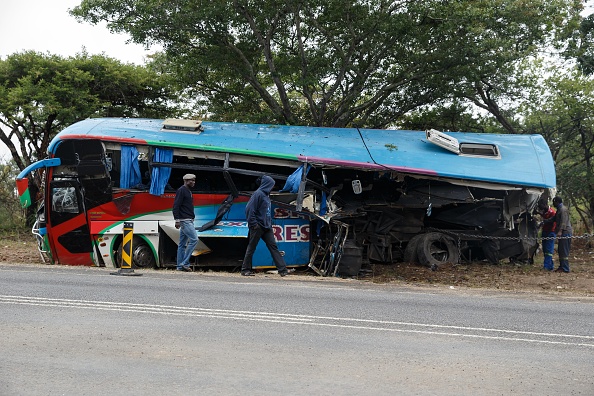
#SpeakUp for road safety and save lives

“56 people die in road crash at Fort Ternan in Kericho, Kenya”, “29 pupils die in bus accident in Arusha, Tanzania”, “Limpopo accident leaves 26 dead”, “8 killed in a road accident on Red Sea road, Egypt”
These are some of the headlines used in the last year across the African continent to report the devastating news of road accidents.
But these are not just mere numbers, each represents a human life lost on a road somewhere in Africa. And according to the World Health Organization (W.H.O) every one of those deaths was preventable.
The headlines above represent just a tip of the iceberg when it comes to the actual numbers of how many lives have been lost on the African roads. According to a report, ‘the Global Status on Road Safety’, Africa’s roads are the world’s deadliest with a road traffic deaths rate of 26.6 per 100,000 people. The Americas and Europe have the lowest rates of 15.6 and 9.3 deaths per 100,000 population respectively.
The report also states that no African country except South Africa meets any of the UN’s seven main vehicle safety standards some of which include; seat-belt regulations to ensure that seat-belts are fitted in vehicles during manufacture and assembly and that seat-belt anchorages can withstand the impact of a crash, anti-lock braking devices to prevent wheels from locking during braking and installation of electronic stability control to prevent skidding and loss of control when a driver over or understeers.
The risk of dying in a road traffic crash is more than 3 times higher in low-income countries than in high-income countries. W.H.O attributes the reasons behind this to; Lax enforcement of traffic rules, often due to corruption, poor road conditions and lack of pedestrian infrastructure such as pavements and crossings.
In Kenya, fatalities as of April 11th 2019 increased by 24.57% at a total of 3767compared to the same time last year where a total of 3024 fatalities were recorded by the National Transport and Safety Authority (NTSA). According to the statistics, pedestrians recorded the most number of fatalities at a total of 339.
Road traffic deaths are an unacceptable price to pay for mobility,’ says W.H.O Director-General, Dr Tedros Adhanom Ghebreyesus.
So what needs to be done?
It is the Fifth UN Global Road Safety Week (6-12 May 2019) and thousands of road safety advocates from around the world are highlighting the need for more effective leadership for road safety. Strong leaders – both government and nongovernment alike – are those who #SpeakUp for road safety and act on the concrete interventions which have proven to save lives.
WHO Director, Dr Etienne Krug, says that “The issue of road traffic accidents is a problem with proven solutions. Governments and their partners must demonstrate leadership and accelerate action to save lives by implementing what works.”
In line with ‘what works’, W.H.O listed some of the solutions to road safety such as:
- Increasing motorcycle helmet use – Best practice for motorcycle helmet laws includes a requirement for drivers and passengers to wear a helmet on all roads.
- Wearing a seat-belt reduces the risk of death among drivers and front seat occupants by 45–50%, and the risk of death and serious injuries among rear seat occupants by 25%
- Use of child restraints can lead to at least a 60% reduction in deaths, best practice criteria for child restraint laws include a requirement to place children at least until ten years of age or 135 cm in height in a child restraint; a restriction to seating children in the front seat; and a reference to a safety standard for child restraints.
- Research has shown that improvements to road infrastructure, particularly design standards that take into account the safety of all road users, are critical to making roads safe.
During a UN global forum on road safety awareness, it was said that road safety receives 1,000 times less mentions than other causes with similar fatality rates like AIDS, tuberculosis or malaria. In this year’s Road Safety Week, #SpeakUp for road safety in your country, and call for urgent action on road safety interventions which could save lives.






